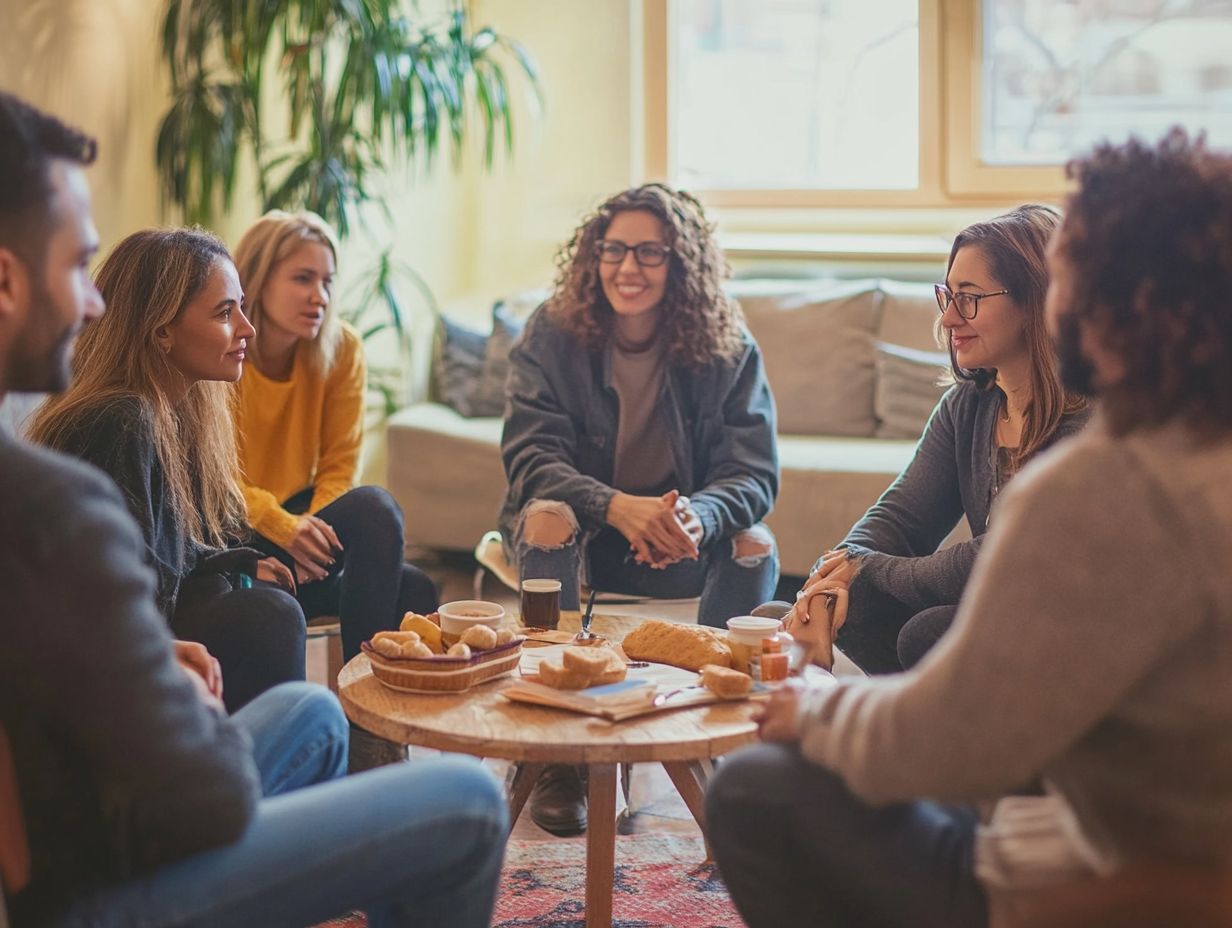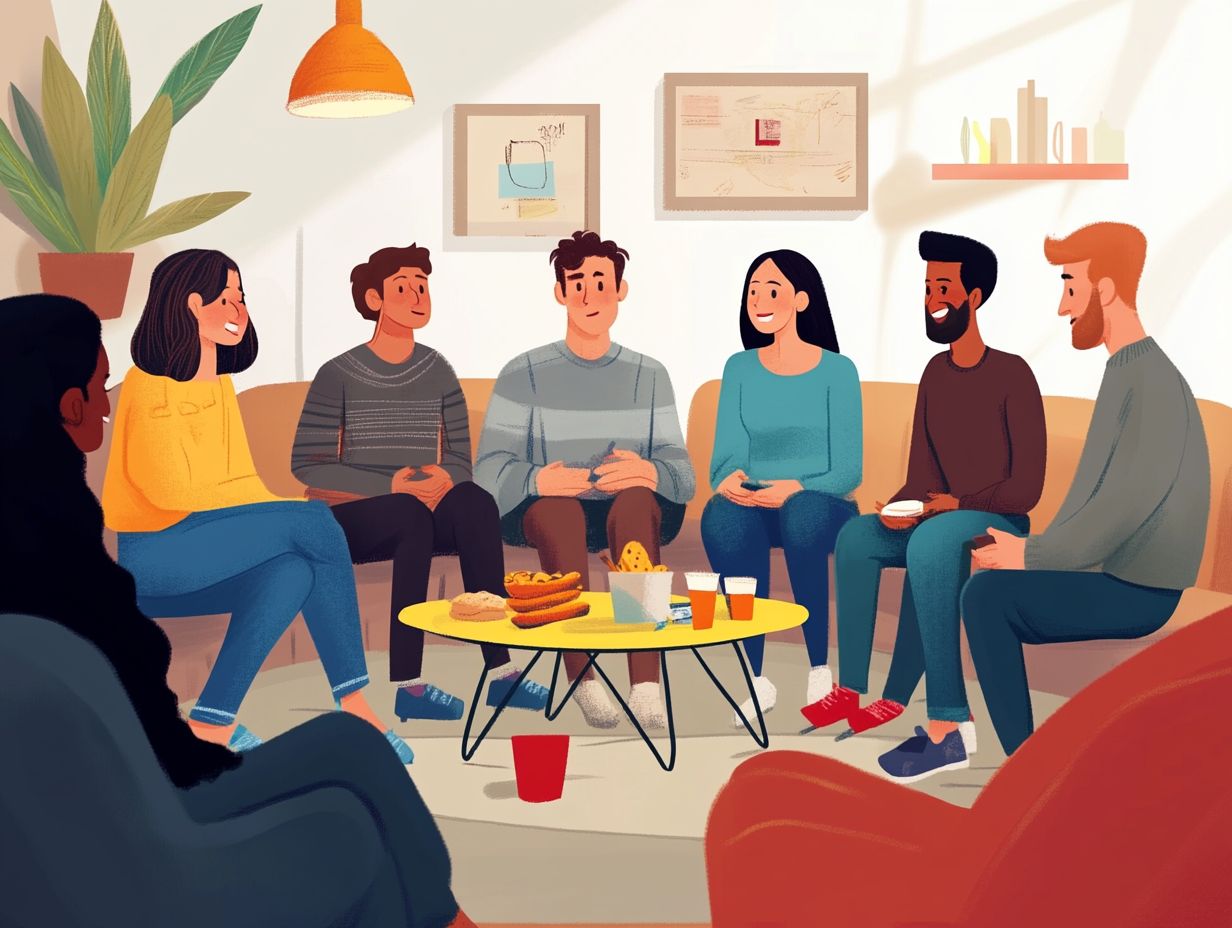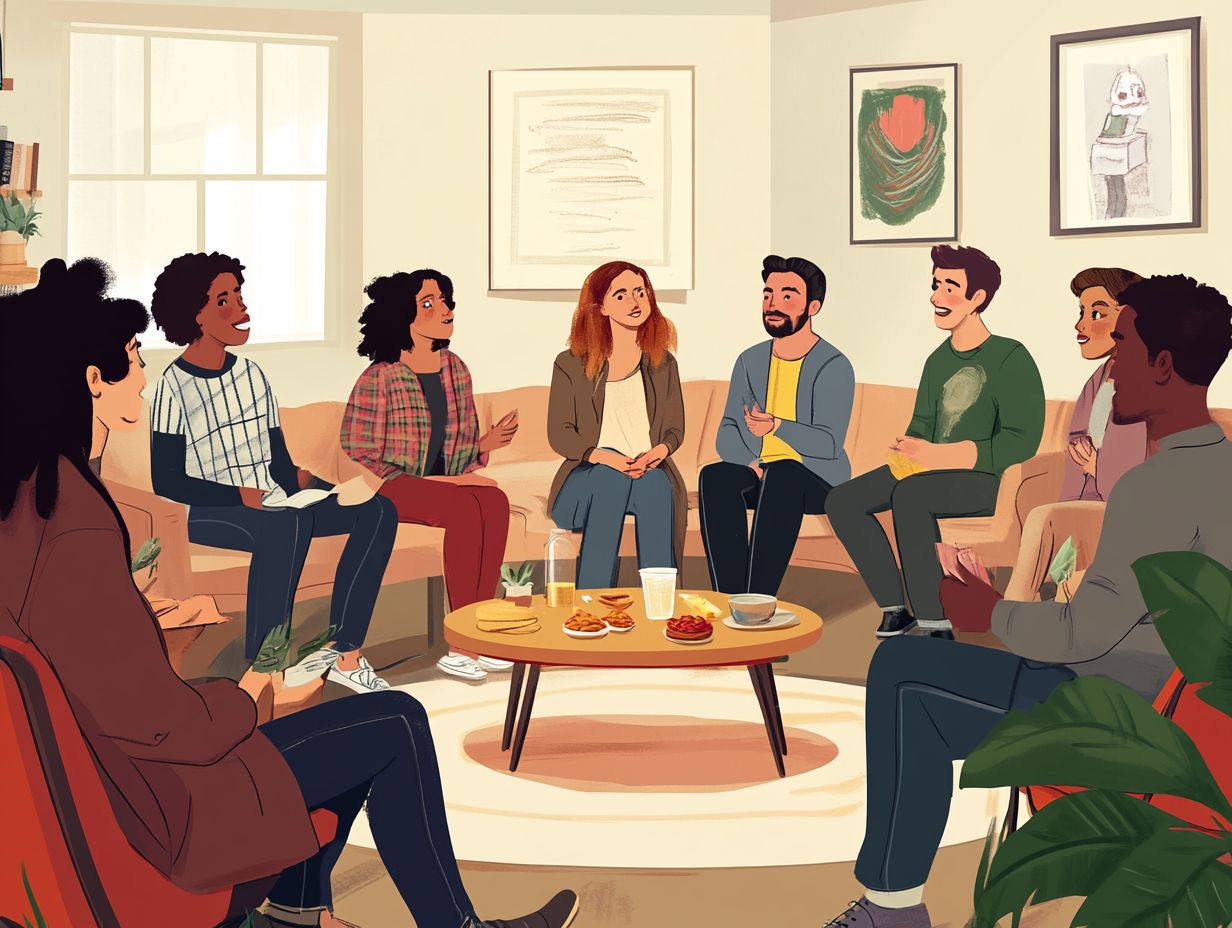Finding the right cancer support group is crucial for anyone affected by cancer, whether they are patients, caregivers, or survivors. Cancer support groups provide emotional and practical support, offering a safe space to share experiences, learn about treatment options, and develop coping strategies.
Joining a support group can significantly reduce feelings of isolation, manage stress, and provide hope during recovery. With various types of support groups available—including in-person meetings, online communities, and specialized groups—it’s essential to find one that meets your specific needs.
Whether you prefer the direct interaction of in-person meetings or the flexibility of online platforms, understanding how to select the right support group and what to expect can help you make the most of this valuable resource.
Key Takeaways:
The Importance of Cancer Support Groups

Cancer support groups offer emotional and practical assistance to cancer patients, caregivers, and survivors.
These groups provide a safe space for sharing experiences, learning about treatment options, and developing coping strategies.
Organizations like CancerCare and the American Cancer Society offer resources, including online support through chat rooms and message boards.
Benefits of Joining a Support Group
Joining a cancer support group offers emotional support, shared coping skills, and resources for patients and caregivers.
Support groups provide a sense of belonging, allowing members to share experiences and learn from others facing similar challenges.
Participation helps manage stress and anxiety through shared stories and advice.
Connecting with others reduces feelings of isolation and provides hope and encouragement during recovery.
Types of Cancer Support Groups
Types of cancer support groups include in-person meetings, online communities, and specialized groups based on cancer types or demographics.
Common types of cancer support groups are:
- Blood Cancer Support Groups
- Breast Cancer Support Groups
- Colorectal Cancer Support Groups
- Pancreatic Cancer Support Groups
- LGBTQ+ Cancer Support Groups
- Young Adult Cancer Survivors Support Groups
These groups can be found through local organizations or online platforms like myCancerConnection.
In-Person vs. Online Groups
In-person cancer support groups offer direct interactions and face-to-face emotional support.
Online cancer support groups provide flexibility and accessibility via digital platforms, benefiting those with mobility issues or living remotely.
In-person groups create intimate environments, while online groups allow diverse perspectives from broader regions.
Both formats have unique advantages based on individual needs and preferences.
How to Find the Right Support Group

Finding the right cancer support group involves assessing personal needs and exploring available resources.
Identify specific needs based on diagnosis, age, and support requirements.
Contact health professionals, oncology social workers, or local organizations for recommendations on support groups that match these needs.
Evaluate meeting formats and registration requirements to select the appropriate group.
Factors to Consider
When selecting a cancer support group, consider these factors:
- Type of cancer diagnosis
- Emotional support needs
- Group facilitator qualifications
- Shared experiences and coping techniques
- Availability of complementary community resources
- Group meeting frequency and discussion format
- Sense of community and connection among members
- Access to local resources like workshops and mental health services
What to Expect in a Support Group
In a cancer support group, participants can expect a safe environment to share experiences, discuss coping skills, and receive emotional support.
Support group activities often include:
- Guided discussions
- Therapeutic writing exercises
- Peer support sessions
These interactions help members discuss personal challenges and triumphs related to cancer.
Activities and Discussions
Cancer support groups offer activities and discussions that help members cope by fostering emotional expression and providing peer support.
Activities include:
- Therapeutic writing, where participants write letters to themselves
- Group discussions focused on sharing personal stories and coping techniques
These activities encourage emotional catharsis and community building.
How to Get the Most Out of a Support Group

To get the most out of a support group, actively participate and share personal experiences.
Support group members should contribute to discussions and express emotions to enhance coping techniques and build community.
Engaging with facilitators and peers in a support group fosters a sense of connection and peer support.
Tips for Active Participation
Active participation in a cancer support group involves sharing personal experiences, listening to others, and learning new coping skills.
Engage by asking open-ended questions to encourage discussion and take turns leading or sharing resources.
Recognize contributions of others to strengthen group bonds and express gratitude regularly to maintain a positive environment.
Frequently Asked Questions
What is a cancer support group?
A cancer support group is a group of individuals who come together to provide emotional and practical support to those who are diagnosed with cancer. Members of the group may have similar experiences and can offer valuable advice, resources, and a sense of community to those in need.
How do I know if a cancer support group is right for me?

If you have been diagnosed with cancer or are currently going through treatment, a cancer support group may be beneficial for you. It can provide a safe space to share your feelings, connect with others who understand what you are going through, and receive emotional support during a difficult time.
How do I find the right cancer support group?
There are many ways to find a cancer support group that is right for you. You can start by asking your healthcare team for recommendations, searching online for local groups, or reaching out to national organizations such as the American Cancer Society. It is important to find a group that aligns with your needs and preferences, whether it be in-person or online.
What should I look for in a cancer support group?
When searching for a cancer support group, it is important to consider the group’s size, structure, and focus. Some groups may be more formal with set meetings and agendas, while others may be more casual. It is also important to find a group with members who have similar experiences, such as the same type of cancer or treatment.
What are the benefits of joining a cancer support group?
Joining a cancer support group has many benefits, including receiving emotional support from others who understand your struggles, learning about coping strategies and resources, and feeling less isolated in your cancer journey. Additionally, being part of a support group can improve your overall well-being and quality of life.
Are cancer support groups only for cancer patients?
No, cancer support groups are open to anyone affected by cancer, including caregivers, family members, and friends. These individuals also go through a difficult time and can benefit from the support and understanding of others in similar situations.





